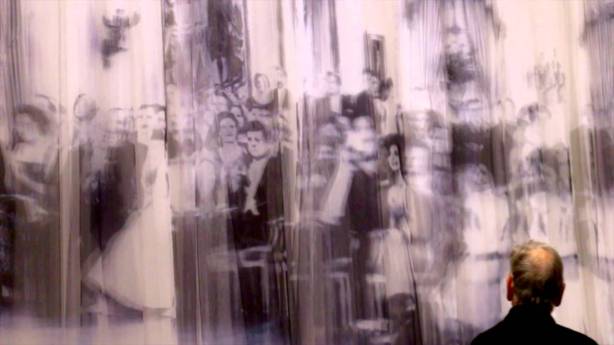
I have spent considerable time on social media this year, maybe too much so, but I believe it has the potential of doing more good than harm. I curate my online persona, of course. What you see of me is what I want you to see, what I put there to convince you of something, to show you my best self, or to reinforce my tribal allegiances. I don’t spread falsehoods on social media, but, if I am honest, neither do I share my whole truth. I reveal a crafted facade of a life, the modern rendition of what the poet Percy Shelley called “the painted veil”:
Lift not the painted veil which those who live
Call Life: though unreal shapes be pictured there,
And it but mimic all we would believe
With colours idly spread,
Our social media profile is only the most extreme version of our self-edited lives, so perhaps 2017 was unsettling because it feels like we have all, somehow, gotten glimpses of what awaits behind our great national communal curtain. It’s as if our veiled personas were lifted this year, and our pure unedited lives emerged from behind all the vacation photos, personality quizzes and restaurant updates. Shelley told us what to expect when that happens:
— behind, lurk Fear
And Hope, twin Destinies; who ever weave
Their shadows, o’er the chasm, sightless and drear.
Fear and Hope. I suppose that was my 2017 in a nutshell. As a person of faith who grew up in evangelicalism, my experience with God is embodied, quite literally, within my faith community. I am obliged now to entertain the notion that God may choose not to use that white evangelical community to accomplish His will. That has created in me a sense of unmooring. As an American I have, perhaps naively, assumed that we citizens largely endorse the general Welfare, and Blessings of Liberty; merely differing in how politically to attain them. However, this last year suggests that many Americans have a very different view not merely of the means to, but of the very the definition of, the American ideal. Bedrock expectations have cracked, prompting a chronic, low-grade psychological distress.
I’m pretty sure I’ve disappointed friends as well who thought they knew me differently than I have turned out to be. Yet, in all this, I have also made wonderful new friends, been allowed to consider different perspectives, heard both brand new voices and bold new thoughts from established voices. My own upset in 2017 has enabled me to empathize, perhaps for the first time, with those who, by virtue of race, gender or other characteristic, experience political abandonment routinely. I am grateful for this new perspective.
Because I am a person of faith, I already maintain a confirming hope which is undefeated by daily personal, social, or political tribulations. But since God has chosen a distinctly temporal setting for my life, I am called to lift the veil and view this world in which I walk as clearly as possible, even if it means fear joins hope as travel companion. Though in this, to my mind, poor Shelley is altogether wrong:
I knew one who had lifted it — he sought,
For his lost heart was tender, things to love,
But found them not, alas! nor was there aught
The world contains, the which he could approve.
Through the unheeding many he did move,
A splendour among shadows, a bright blot
Upon this gloomy scene, a Spirit that strove
For truth, and like the Preacher found it not.
I have my usual resolutions for 2018; I want to care, speak up, model grace, and make a difference, even if that difference is only to give others in my tribal community the permission to think critically and speak outside our norm. But most of all? My resolution in 2018 is to find new things to love, to be a “bright blot” and…Percy Shelly to the contrary…to find Truth in doing so.
Happy New Year, 2018


 This might get me into trouble, but here’s my take on Gorsuch. He deserves to be confirmed. I don’t agree with his legal philosophy but, from what I know so far, he is competent, by all accounts intelligent, has regard for the rule of law, and seems like he would fit on this court. Unlike other Trump nominees (I’m talking about you, Betsy) he is a legitimate selection.
This might get me into trouble, but here’s my take on Gorsuch. He deserves to be confirmed. I don’t agree with his legal philosophy but, from what I know so far, he is competent, by all accounts intelligent, has regard for the rule of law, and seems like he would fit on this court. Unlike other Trump nominees (I’m talking about you, Betsy) he is a legitimate selection.




